Patents
Patent protection plays a strategic role and offers competitive advantage to companies and entities interested in innovating their process and products.
Ca' Foscari promotes an Industrial Property culture that encourages investment in research and development and, to this end, supports its researchers in patent filing and managing relations with entities and businesses.
PInK offers a technology transfer process that covers the following services:
- scouting of scientific results
- search for opportunities of funding and technological enhancement
- consultancy in the prior state search and filing phases
- promotion and opportunity for exploitation of inventions, including through participation in technological showcasing or generalist trade fairs, to facilitate the meeting between the demand and the supply of technology innovation.
For details and collaborations, contact us: pink@unive.it.
Registered patents
The patents listed below, in chronological order of filing, are available for licensing or transfer agreements, starting from the dates indicated in each patent.
For detailed info sheets on Ca' Foscari's patents, please consult Knowledge Share, the portal dedicated to the valorisation of Italian public research results, or contact: PInK - Research valorisation office, pink@unive.it.
Macrocyclic peptides as targeted hACE2 inhibitors for therapy and diagnostics

The research team, which is composed of researchers and a spin-off from Ca' Foscari University and a hospital unit, has engineered macrocyclic peptides capable of selectively binding to the human angiotensin-converting enzyme (hACE2). These peptides thus inhibit its activity for therapeutic purposes (cardiovascular diseases such as hypertension and heart failure, diabetes, viral infections, and chronic inflammatory conditions) and act as molecular probes for diagnostic purposes, providing data on the progression or susceptibility to diseases such as COVID-19 or metabolic disorders.
These peptides, which are limited in length (7 to 17 amino acids) and have a stable macrocyclic structure, are produced via chemical synthesis or recombinant technologies. The key advantages lie in their high affinity and selectivity for hACE2 (crucial for not inhibiting the homologous enzyme hACE1), low toxicity, and improved pharmacokinetic profile due to their limited size. These peptides can be further modified, for example, conjugated with drugs (cytotoxic molecules) or in variable release systems.
- Holders: Ca' Foscari University of Venice, Centre Hospitalier Universitaire Vaudois (Chuv), Arzanya Srl
- Inventors: Alessandro Angelini, Zhanna Romanyuk (UniVe), Sylvia Rothenberger-Aubert (Chuv)
- Italian application: IT102025000021346
- Available for licence or transfer agreements from 12/11/2025
Anti-corrosion coating method with a graphene oxide film
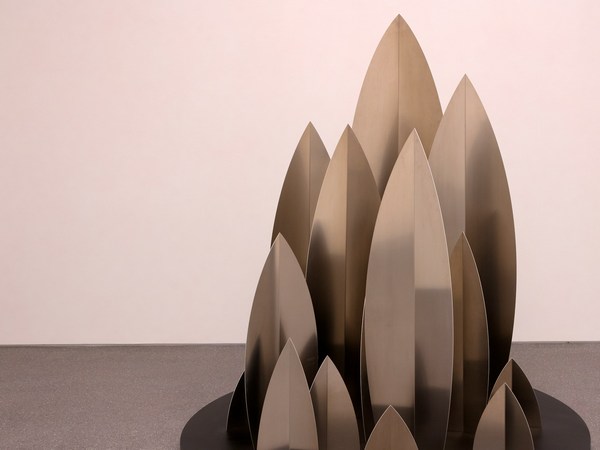
This method innovates the protection of metal surfaces in corrosive environments due to atmospheric and chemical agents, by effectively transferring a nanostructured GO (graphene oxide-based) film on their surface. Its most suitable application is in the protection and conservation of artistic and historical metal artifacts, subject to oxidation. The efficacity of the physical barrier can be extended with a chemical action, by adding metal oxide nanoparticles to prevent oxidising agents and free radicals.
- Holders: Ca' Foscari University of Venice, Istituto Italiano di Tecnologia, Università degli Studi di Firenze
- Inventors: Erica Galvagno, Federica Menegazzo, Edoardo Tartaglia, Chiara Zanardi (UniVe); Mauro Moglianetti, Arianna Traviglia (IIT); Piero Baglioni, Gabriella Caminiati (UniFI)
- Italian application: 102025000008268
- Available for licence or transfer agreements from 07/08/2025
Sustainable and recyclable thermosetting polyesters with outstanding mechanical properties
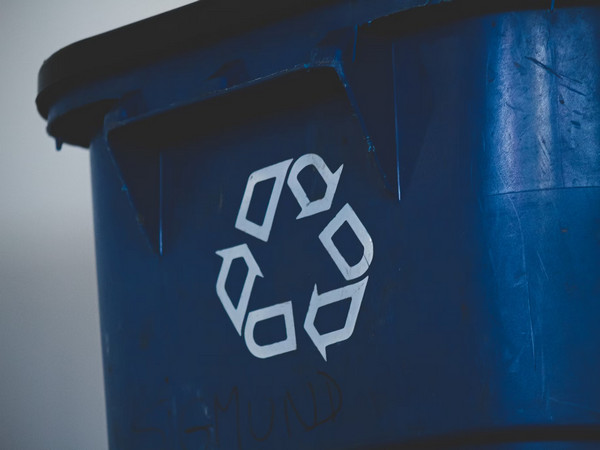
Sustainable method for the synthesis and chemical recycling of thermosetting bio-based polymers with tunable mechanical properties. Unlike current methods, this process features non-hazardous reagents and achieves materials with excellent mechanical properties. The reaction combines polyols (also of natural origin) with a cross-linking mixture of polyanhydrides, obtained through the chemical activation of dioic acids. The new materials produced can be highly cross-linked and branched; they are repeatedly recyclable through a simple procedure, which allows both the recovery of the starting monomers and their reconversion into new polyesters with characteristics comparable to the starting materials. These materials can be used in various fields, such as coatings, gaskets, rubber materials of various kinds, glues, packaging, foams and composite materials (carbon/glass fibres or wood laminates).
- Holder: Università Ca' Foscari Venezia
- Inventors: Matteo Lorenzon, Alvise Perosa, Davide Rigo, Maurizio Selva
- Italian application: 102025000006918
- Available for licence or transfer agreements from 05/08/2025
E-health: Artificial Intelligence and digital pathology to analyse renal biopsies
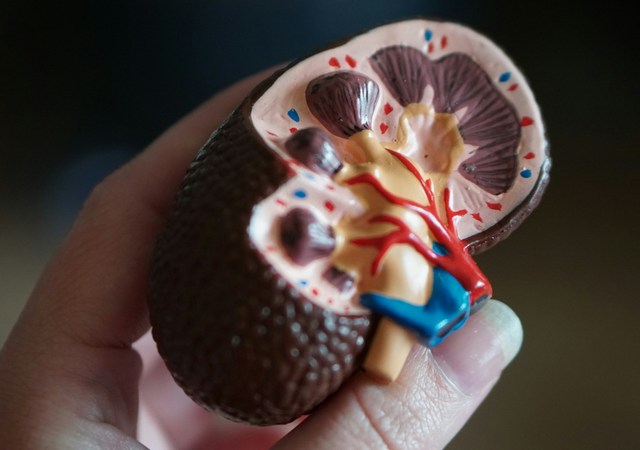
Renal biopsy is the main tool for diagnosis of kidney diseases. It is supported by digital pathology, with analysis of digitized histological images, which, however, suffers from human interpretation under a microscope. The process is time-consuming and not always objective nor uniform. The invention Ca' Foscari and Milano Bicocca universities have produced introduces an innovative computer-implemented method, based on Artificial Intelligence, to automatically analyse digitized images of kidney biopsies. This can speed up the identification of lesions and reduce inter-observer variability among pathologists. Specifically, the method allows tissue structures to be recognized, pathological changes to be characterized, and a report to be generated by applying objective classification criteria. It can be integrated into reporting equipment software, finding clinical and commercial application with benefit to both patients and medical personnel as it improves diagnostic accuracy.
- Holders: Università degli Studi Milano Bicocca, Ca' Foscari University of Venice
- Inventors: Daniela Besozzi, Giulia Capitoli, Vasco Coelho, Stefania Galimberti, Francesco L'Imperio, Mario Marino, Fabio Pagni, Daniele Papetti (UniMiB); Marco S. Nobile (UniVe)
- Italian application: 102024000028188
- Available for licence or transfer agreements from 16/05/2025
Low-cost nanomaterial for the efficient production of hydrogen

This invention enables the high-yield synthesis of multifunctional, non-stoichiometric nanoparticles via a simple, low-cost, and environmentally sustainable method that uses non-toxic, readily available solvents (water and table salt). This is suitable as a (photo)electrode for water electrolysis, aimed at generating green hydrogen, one of the most promising energy carriers in the shift towards renewable energy. The method, also through a urea oxidation reaction, opens up prospectively the treatment of water containing nitrogenous compounds such as urea.
- Holder: Ca' Foscari University of Venice
- Inventos: Edlind Lushaj, Federico Polo, Elisa Moretti, Alberto Vomiero
- Italian application: 102024000029286
- Available for licence or transfer agreements from 28/03/2025
Sustainable production of nanochitin

Chitin is the most abundant natural biomass after cellulose. Its extraction from waste materials is a very current research topic, especially in green chemistry. Research groups from Venice and Munich have collaborated to develop a new method to produce chitin nanoparticles in a sustainable way and with a simplified process: it uses raw material from waste (test made on crab shells, but also applicable to insect exoskeletons, fungi, algae...) and, instead of strong mineral acids, a deep eutectic solvent (cheap and non-toxic) with carbon dioxide under pressure. The nanomaterials obtained are useful for the production of packaging, pharmaceuticals or cosmetics, coatings and generally as materials with antiseptic and antibacterial properties.
- Holders: Ca' Foscari University of Venice, Max-Planck-Gesellschaft zur Foerderung der Wissenschaften e.V.
- Inventors: Roberto Calmanti, Alvise Perosa, Maurizio Selva (UniVE), Markus Antonietti, Svitlana Filonenko (MPI)
- Italian application: 102025000001341
- Available for licence or transfer agreements from 27/03/2025
Antimicrobial and removable coatings for cultural heritage

Cultural heritage surfaces are generally complex multi-material systems from which microorganisms are able to draw nourishment and form a biofilm. This biofilm may damage both aesthetically and structurally the piece. Coating compositions to be applied on cultural heritage surfaces have to be endowed with several features such as - to mention the most important - transparency, non-toxicity, neutral pH, permeability to water vapour, compatibility with the substrate. The international group formed by Ca’ Foscari University of Venice, IIT and the Academy of Fine Arts of Vienna has developed coating compositions with antimicrobial properties, particularly suitable for coating substrates and for counteracting the spread of microorganisms such as, for example, bacteria and fungi. In addition, the composition is removable.
- Holders: Istituto Italiano di Tecnologia, Ca’ Foscari University of Venice, Akademie der bildenden Künste Wien
- Inventors: Elena Ghedini, Federica Menegazzo, Michela Signoretto (UniVe), Raffaella Lamuraglia (UniVe and IIT), Mauro Moglianetti, Arianna Traviglia (IIT), Katja Sterflinger (Akbild)
- Italian application: 102023000021963
- Available for licence or transfer agreements from 03/10/2024
Self-assembling DNA nanostructures and metamaterials

The design of nanostructures that self-assemble into a specific structure is the complicated problem behind the invention, because it requires the consideration of multiple variables and the simulation of different interactions at the molecular level. The technology consists of an innovative computer system that uses advanced mathematical models and algorithms to simulate self-assembly of nanostructures; the process determines the optimal parameters to guarantee a precise and reliable result to obtain the desired structure, while avoiding the formation of other undesired structures.
The method can be applied in particular to DNA nanostructures and to metamaterials, which are artificial materials designed to have physical properties not found in nature and that can manipulate electromagnetic waves (such as light and sound) in unique ways. The invention opens up new perspectives in nanotechnology and bioengineering, such as advanced and computational optics, medical imaging sensors, antennas, invisibility technologies, signal processing.
- Holders: Università di Roma la Sapienza, Arizona State University (USA), Ca' Foscari University of Venice
- Inventors: Flavio Romano (UniVe), John Russo (La Sapienza), Petr Sulc, Micheal Matthies, Hai Lie (ASU)
- USA application: US n-p 18/606,649
- Available for licence or transfer agreements from 15/03/2024
'Green' sweetening: sorbitol circular process

Sorbitol production is among the new frontiers of circular economy research. It is a sugar substitute endowed with a low caloric content, which we can found in scores of everyday products (toothpastes, vitamins, foods, textile processing...); however, its production undergoes quite unsustainable methods: the two-step procedure in use (hydrolysis of cellulose followed by hydrogenation) employs corrosive acids to extract and process sorbitol from cellulose. At Ca' Foscari University of Venice we have discovered a new method, now patented, to obtain it in a one-pot step and using simple carbon dioxide! The method also allows the use of various cellulosic sources, including paper waste such as pizza boxes.
The idea won the Italian edition of the prestigious Falling Walls Lab 2023 competition, submitted with the support of our knowledge transfer office PInK. Watch the pitch by Giancarmelo Stamilla
Read the news: Sorbitol from pizza boxes: from Ca’ Foscari a new 'green' patent
- Holder: Ca’ Foscari University of Venice
- Inventors: Alvise Perosa, Maurizio Selva, Daniele Polidoro, Giancarmelo Stamilla
- Italian patent granted: 102023000010434, international application: WO2024/241268
- Available for licence or transfer agreements from 02/10/2023
Super-films: biocompatible paints and biodegradable coatings

Nanostructured nanowhiskers (NWs) are highly sought after, due to their nanometric conformation, which allows their chemical-physical properties to be amplified, in addition to their excellent biodegradability and non-toxicity, and great absorption capacities, strength and stiffness. However, their use for the production of functional, versatile and scalable films and coatings has not yet been codified for efficient use. Researchers at Ca' Foscari and Pavia universities have succeeded in creating a stable compound with multiple properties: antioxidant, antibacterial, anti-UV and antimicrobial. A valuable ally for medical (e.g. protective films for wounds), cosmetic (water-based nail polish), active food packaging, sensing and preservation applications (to prevent, for example, the degradation of paper in ancient manuscripts).
Chemically, the compound is based on deacetylated chitin NWs, an acidifying agent, an aqueous solvent and a plasticizer.
Read the news: Intelligent Materials from Blue Crab Shells: a Ca' Foscari Patent
- Holders: Università Ca’ Foscari Venezia, Università degli Studi di Pavia
- Inventors: Claudia Crestini, Matteo Gigli, Daniele Massari, Livia Visai (UniVe), Bloise Nora (UniPv)
- Italian patent granted: 102023000006900, international application: PCT/IB2024/053224
- Available for licence or transfer agreements from 02/10/2023
A 'domino effect' of free radicals against tumour cells

Free radicals are commonly associated with cellular ageing; however, they might not always cause harm. This is the case with the 'domino effect' engineered by researchers at Ca' Foscari and the CRO in Aviano, which exploits the particularly toxic oxidative action activated by copper nitroprusside (CuNP) mainly towards diseased cells. The patented pharmaceutical composition interacts with tumour cells, within which a chain reaction of free radicals is generated that destroys the cell membrane. CuNP nanoparticles, which are less toxic for healthy cells, can therefore be used for chemodynamic therapy. The compound has been successfully tested in vitro on ovarian and breast carcinoma and glioblastoma (brain) and is proceeding with in vivo validations. The research group also won a training course to bring the invention closer to the market: S3E START 2023.
- Holders: Ca’ Foscari University of Venice, Centro di Riferimento Oncologico di Aviano
- Inventors: Flavio Rizzolio, Muhammad Adeel, Kanwal Asif (UniVe), Vincenzo Canzonieri (CRO)
- Italian patent granted: 102022000025359
- Available for licence or transfer agreements from 09/06/2023
Efficient magnetic resonance imaging
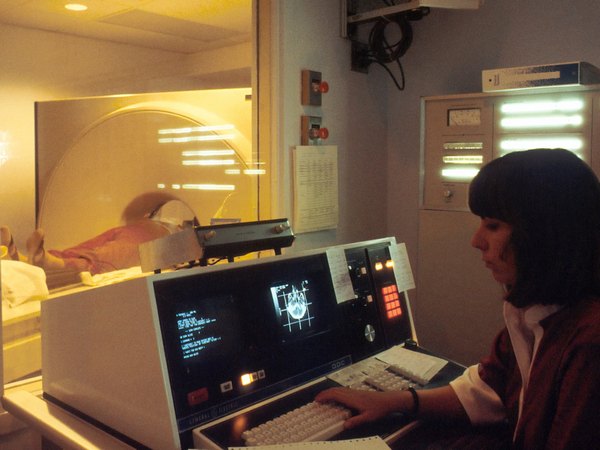
Magnetic resonance imaging (MRI) with contrast medium often requires long and costly tests, repetitions and adequately trained personnel. Setting the optimal moment to acquire the diagnostic image would however enable more efficient exams, both for patients and health care structures. The method developed by Ca’ Foscari and Bicocca universities with the Auxology Italian Institute is based on an AI machine learning model, trained with values derived from a multiplicity of sample evaluations, which adapts to the meaningful data of the patient and to the specific parameters of the test to be performed. It determines then the optimal inversion time value for each patient and test, thus allowing for quicker and less test sessions to administer and a better image quality. The model has been tested for the myocardium and could be applied also to different MRI exams.
The technology won the first prize in the Shark Tank Competition during the global conference on cardiovascular magnetic resonance (CMR 2024, in London).
Read the news: Thaiti: the Italian software optimising cardiac MRI
Holders: Milano-Bicocca University, Istituto Auxologico Italiano, Ca' Foscari University of Venice
Inventors: Daniela Besozzi (UniMiB), Marco S. Nobile (UniVe), Daniele Papetti (UniMiB), Camilla Torlasco (IAI)
Italian patent granted: IT102022000017907, European application: EP23761155
Available for licence or transfer agreements from 22/12/2022
Bicyclic peptides for target therapy against cancer and inflammatory diseases
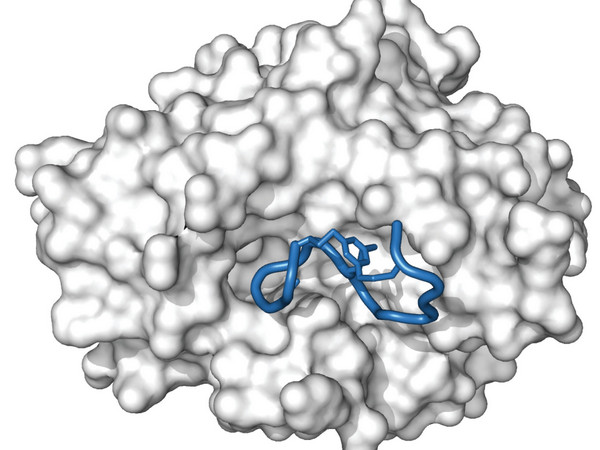
Bicyclic peptides are next generation therapeutic molecules, with high target affinity, specificity and stability and good tissue penetration. The herein invented compounds can detect and inhibit the enzyme uPA that is involved in extracellular matrix degradation, and may therefore be useful in the treatment of pathological conditions linked to it, particularly primary or metastatic forms of cancer and inflammatory diseases, such as rheumatoid arthritis. Bicyclic peptides have in general low toxicity and immunogenicity and can be formulated in pharmaceutical compositions for parenteral administration, also in combination with other active ingredients.
Read the news: ‘Key’ that inhibits molecules involved in cancer spread uncovered
Holders: Ca' Foscari University of Venice, Università degli Studi di Padova
Inventors: Alessandro Angelini, Nicola Frasson, Ylenia Mazzocato (UniVE), Laura Cendron (UniPD)
Italian patent granted: 102022000012431
Available for licence or transfer agreements from 18/07/2022
Inhibitory compounds to fight neurodegeneration and tumors
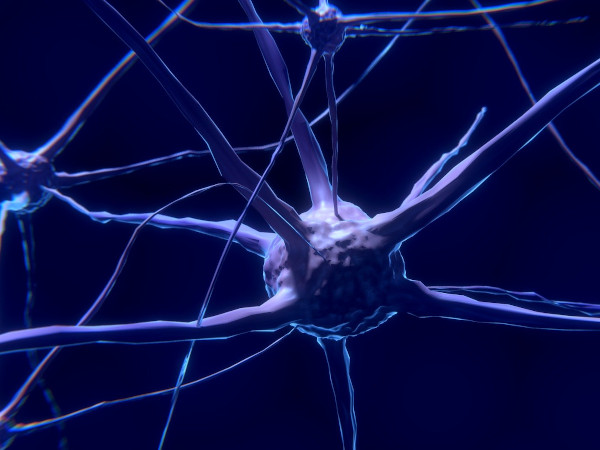
Monoacylglycerol lipase (MAGL) is an enzyme naturally present in many brain cells and involved in physio-pathological processes (regulation of inflammation, anxiety, immune modulation, motor coordination ...), yet its overexpression/upregulation can cause neuroinflammatory diseases and tumors. Its inhibition has a high therapeutic potential: new reversible inhibitory compounds have been tested, reducing the side effects of the irreversible inhibitors so far studied, and proved to be effective in laboratory on various tumor cell lines (e.g. colorectal, breast and ovarian cancer); they could also treat other MAGL-mediated pathologies (such as multiple/lateral sclerosis, Alzheimer's and Parkinson's disease).
Holders: University of Pisa, Ca’ Foscari University of Venice
Inventors: University of Pisa: Carlotta Granchi, Giulia Bononi, Marco Macchia, Filippo Minutolo, Giulio Poli, Diana Scalabrini, Tiziano Tuccinardi, Antonio Giordano; Ca’ Foscari University of Venice: Flavio Rizzolio
Italian patent granted: 102020000007150
Available for license or transfer agreements from 14/05/2020
A more intuitive way of writing online in Japanese

Japanese written language uses two phonetic alphabets (hiragana and katakana) in addition to sinograms (kanji), not to mention the fact that... it has no spaces between words. This makes it considerably difficult for anyone who wants to learn, write or translate a text in Japanese, becoming even more complicated when the writing has to go through the web. The new method for language teaching, invented by researchers at Ca’ Foscari, is based on Long Unit Words and facilitates the translation process and the learning of the written language by native speaker children and by foreign learners of all ages.
Holder: Ca’ Foscari University of Venice
Inventors: Marcella Maria Mariotti, Alessandro Mantelli
Italian patent granted: 102019000002235
Available for license or transfer agreements from 29/08/2019
Production of PHAs for bioplastics and biogas from municipal solid waste
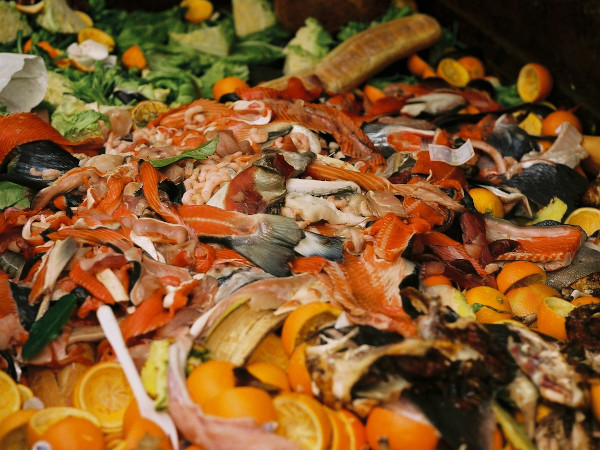
Municipal solid waste (OFMSW) can be reused and enhanced in many useful ways: among these is the fermentation of its organic fraction to obtain thermoplastic polyester polymers (PHAs), precursors of bioplastics and biogas. The patented method uses mixed microbial cultures (MMCs) and combines a biological process with a filtering system to optimized the production.
Read the news: Producing plastic from organic waste: the invention in Treviso
Holders: Sapienza University of Rome, Ca' Foscari University of Venice, University of Verona
Inventors: David Bolzonella, Marco Gottardo, Mauro Majone, Federico Micolucci, Paolo Pavan, Francesco Valentino
Italian patent granted: 102018000003322, European application: EP3833769
Available for license or transfer agreements from 08/04/2018
Patents towards the market
Flexible multisensing electronic device, based on biocompatible materials

The Ca' Foscari University of Venice research group and the Belgian company B4Plastics have developed a flexible electronic device that integrates a plurality of miniaturized electronic components and one or more conductive layers based on chitosan, chitin or a combination thereof. Chitosan and chitin offer mechanical flexibility, biocompatibility, and environmental sustainability, while maintaining intrinsic antibacterial activity. The device represents a platform with multisensing potential, capable of integrating wireless detection and communication functions, with possible applications such as smart patches for continuous monitoring of environmental or physiological parameters.
The technology has been filed as a European patent application (EP25203366) in 2025. The Ca’ Foscari’s quote was subsequently assigned to B4Plastics BV, which specializes in tech biopolymers.
Inventors: Jacopo Nicoletti, Giovanni Antonio Salvatore, Sabrina Tamburini (UniVe); Jolande Celis, Stefaan De Wildeman, Tom Gheysens (B4P).
Platform for the rapid selection of peptide binders against multiple targets

Ca' Foscari's Biomolecular Engineering group has developed an innovative biotechnology platform to generate and engineer peptide ligands (small proteins capable of interacting with other biomecules). This fast and environmentally friendly method exploits vast combinatorial libraries and offers high throughput in both quantity and flexibility of characterization. The technology is key to the identification of new peptide biopharmaceuticals (which combine efficacy and low toxicity with the stability and low cost of small molecules). These peptide drugs have targeted applications in pharmaceutical, veterinary, food, and biosensor fields.
The process, which can be easily automated and integrated with artificial intelligence, was filed as italian application (102023000021963) and exclusively licensed in 2024 to the spin-off of Ca' Foscari Arzanya srl, which has extended its protection internationally.
Inventors: Alessandro Angelini, Sara Linciano, Ylenia Mazzocato, Zhanna Romanyuk
Zero wine waste with microalgae

Waste from winemaking can now be 100% valorized with a closed, semi-continuous process that can be applied on-site at wineries of any size. The technology allows for the phytoremediation of wine wastes and solid or liquid organic waste, with no other use and otherwise to be disposed of (i.e. wine-making lees, wastewater and sludge). The process uses a joint anaerobic digestion-microalgae action, from which further green products can be obtained, such as microalgal biomass (applied in biorefinery and green chemistry) and biogas (renewable energy source).
The invention (Italian patent granted: 102022000011675, international USA + EU application: WO2023/233305) has been licensed exclusively to Cheers2Life in 2024. The company is a spin-off of Ca’ Foscari University in circular economy and will work on the proof-of-concept and/or technology prototype, in order to present it to the market.
Inventors: Cristina Cavinato, Paolina Scarponi
Palladium-based anti-cancer compounds

Anti-tumour research has been exploring metal-based compounds for chemotherapy in alternative to cisplatin agents or related compounds presently in use, to achieve less-toxic, targeted and efficient anti-cancer treatments. The Ca’ Foscari team discovered a new extended class of palladium compounds with vinyl and butadienyl components, which proved a targeted cytotoxic action, though low toxicity toward cells extracted from healthy tissues, in addition to good stability, as well as a rapid and reproducible synthetic method.
The potential to represent a new generation of truly promising anticancer agents has facilitated the acquisition of Ca’ Foscari industrial property rights, by the pharmaceutical company Galenica Senese. Established in Siena in 1949, they specialized in medical devices and infusion and injectable drugs. Since 2023, Galenica Senese has been collaborating with Ca’ Foscari researchers and inventors Flavio Rizzolio and Fabiano Visentin to develop these patented compounds, on a project funded by the Italian Ministry of Health, with the aim of introducing them to the market as formulations for the treatment of cancer.
The two patents - Italian application no. 102019000023079 (with co-inventors Thomas Scattolin, Enrica Bortolamiol) and 102021000012107 (with co-inventors Thomas Scattolin, Dario Alessi) - entered the national phase in USA, EP and INDIA.
Dynamic digestate recirculation for the treatment of organic waste

Two-phase anaerobic digestion systems with digestate recirculation are now standard in the treatment of organic waste (Organic Fraction of Municipal Solid Waste – OFMSW - or other fermentable organic waste). The patent, developed by Ca' Foscari with University of Verona and Sapienza University of Rome, optimizes the process by automatically managing the ratio of digestate recirculation, applying a mathematical model based on the pH in the fermentation reactor, to control the rate flow.
The invetion, which was filed with Italian application: 102018000008006 and international application: PCT/IB2019/056702, has been licensed exclusively to Tonello Energie in 2021: a company developing renewable energy installations.
Inventors: David Bolzonella, Cristina Cavinato, Marco Gottardo, Mauro Majone, Federico Micolucci, Paolo Pavan, Francesco Valentino.
A sustainable system to determine citrus fruits juiciness
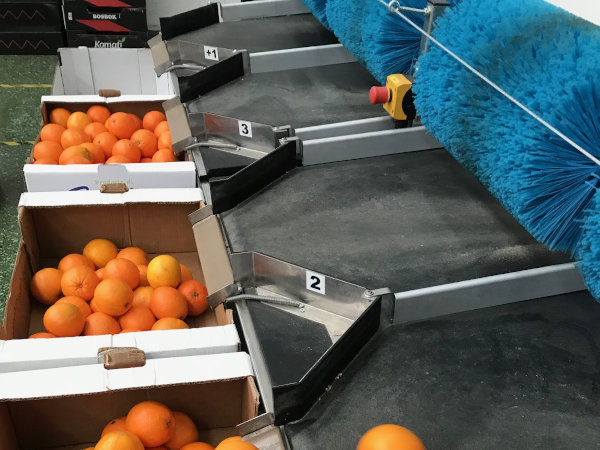
Agricola Lusia, a company based in Rovigo which specialises in the selling of citruses for large-scale distribution, has patented, together with Ca' Foscari University of Venice (Italian application: 102020000030629), a system that applies mathematical methods to obtain non-destructive statistical classification of citrus fruits. The invention has been purchased by the company for industrial implementation and comes after a long-term collaboration between the university and the company, under the coordination of the C4S - Center for Sustainability of Fondazione Università Ca' Foscari. The method patented defines a juiciness parameter while minimising fruit destruction in the process, through scans, fruit squeezing and mathematical models. This parameter adjustes on the variety, origin and maturation degree of the fruits and can be implemented effectively and economically on an industrial scale by means of a dedicated device.
The research has been conducted by Pietro Riello and Carlo Gaetan (Ca' Foscari), Paolo Girardi (now at the Department of Developmental Psychology and Socialization of the University of Padua) in collaboration with the CEO of Agricola Lusia, Daniele Campagnaro, and the General and Strategic Manager, Nicola Modica.
Read the news: record:tx_news_domain_model_cafoscari_news_en:10304
Green cosmetics
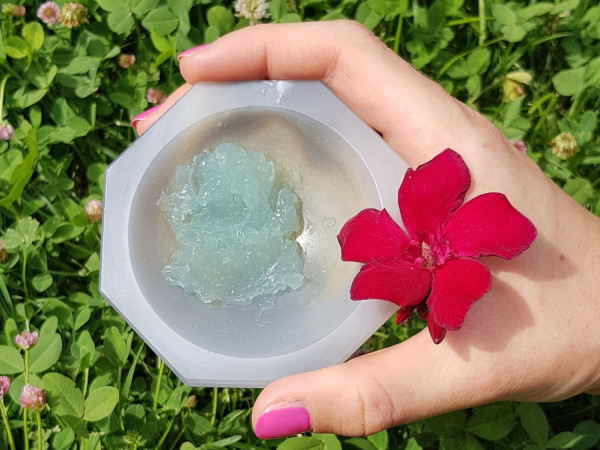
An innovative process for producing a high-end cosmetic base, not only consisting of components derived naturally or produced from waste, but also capable of active ingredients controlled release, thus guaranteeing their optimal penetration into the skin for maximized effectiveness. The process allows the formulation of a final product reducing to a minimum the number of ingredients and raw materials, eliminating the use of some components (such as surfactants), which are generally essential in this type of preparation.
The formulation, invented by Michela Signoretto, Federica Menegazzo, Elena Ghedini and registered with the Italian patent no. 102018000005118 and international application: WO2019215592, has been initialy granted for exclusive license use to VeNice, the Ca' Foscari spin-off specialised in innovative, effective, 100% sustainable natural cosmetics; the British company Mérani, a start-up for skincare belonging to the SABR Partners group, decided to invest on it in 2021, to develop green cosmetics for the market.
Read the news: 'Green' cosmetics: British start-up invests in Ca' Foscari patent
Photovoltaic cells: clean energy from wine waste
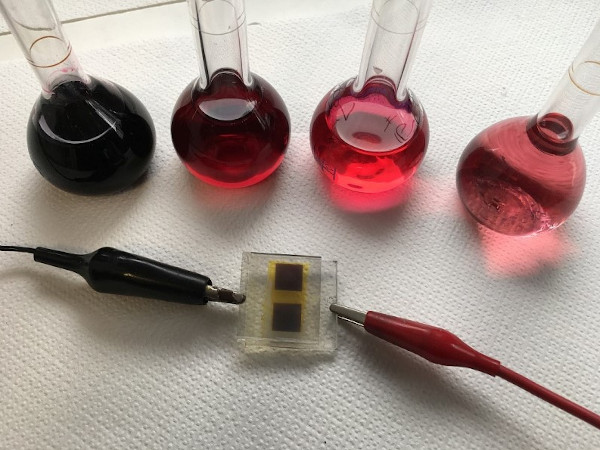
Giving value to waste as a precious renewable resource: for the first time, agri-food waste can be exploited to create photovoltaic cells that produce sustainable electricity. From the residues derived from winemaking (normally disposed of without any other use), researchers can extract natural dyes that capture solar energy, transforming them into a regenerated green resource.
The working group led by Professor Elisa Moretti and including Manuel Meneghetti, Stefano Meneghetti, Enrico Rodrigues Castellon, Aldo Talon, Emilio Celotti, after preliminary studies under an ESF [DHI1] [FS2] project financed by the Veneto Region, carried out research and experiments together with Serena Wines 1881, which resulted in the filing of a patent (Italian application: 102019000006939) in co-ownership. The company then acquired the Ca’ Foscari quota and signed an agreement to develop a prototype and possibly scale up the invention.
A look at the future through new... lenses
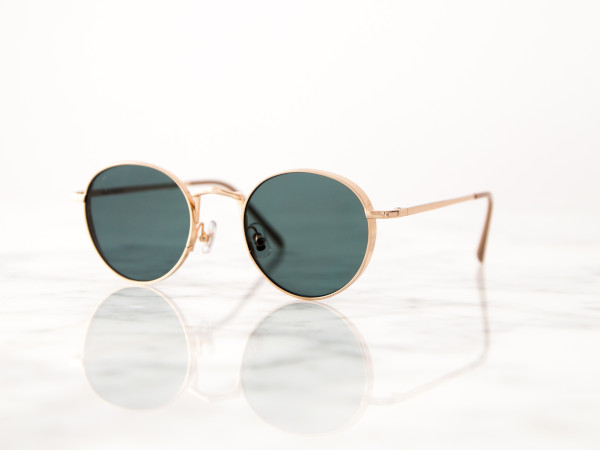
Using a method devised by researchers Elti Cattaruzza, Omar Grasso and Marco Mardegan, glass lenses for sunglasses can be given a wide range of colours in a simpler, safer way easily integrated with existing production lines.
Before this invention, state of the art in surface colouring of the glass was the widespread Hydrogen Firing method (thermal treatment of glass in the presence of hydrogen gas). The prototype developed in the Ca’ Fascari laboratories instead dyes the glass lenses by immersing them in a molten salt bath of a suitable composition: the colour can thus be varied thanks to the exchanges of chemical species between the salt and the glass, without the use of hydrogen , which is a flammable and explosive gas. It can also be implemented simultaneously with the chemical tempering (hardening) of the glass to increase its impact resistance.
The patent, Italian application no. 102016000043786, was sold to Luxottica Group, a leading company in the design, production and distribution of high-end, luxury and sports eyewear present throughout the world with a global wholesale network that reaches more than 150 countries in five continents.
Therapeutic Zirconia: development of new nanoparticles against cancer
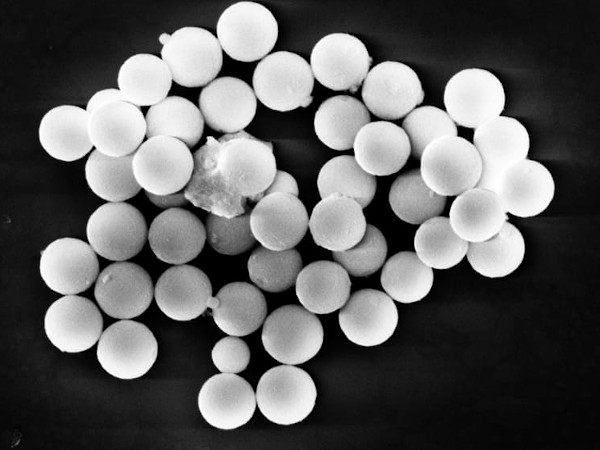
Zirconia-based materials have long been used in medicine, for example in prostheses, but with no possible application in diagnosis and treatment. Researchers Alvise Benedetti, Pietro Riello and Gabriele Sponchia have synthesized new totally mesoporous zirconium oxide nanoparticles using an innovative sol-gel type technique that enables a high degree of control of the shape and diameter of the nanoparticles and of the porosity of the compound. These nanoparticles, due to their capacity for incorporation into the cells of different biological systems are non-toxic and can be applied in the biomedical field (diagnosis of cancer and other pathologies, more effective drug delivery than Silica). They can also be applied in sectors such as cosmetics (e.g. as a carrier of active ingredients, antioxidants and emollient agents), in the dental and prosthetic fields and in regenerative medicine (e.g. production of biocompatible scaffolds).
An invention with great potential that has raised the interest of Brenta srl: this innovative startup of Ninetreesgroup S.p.A. that deals with nanotech for the chemical-pharmaceutical industry, decided to invest in this discovery by purchasing the patent (Italian application no. 0001428445, international application: WO2016120795).
Read the news: Curing Zirconia: nanotech firm buys Ca’ Foscari’s patent
Former collaborations and technologies
Reversible activation of the endocannabinoid system to treat tumours and inflammation

Inhibition or blockade of the human enzyme MAGL (monoacylglycerol lipase) can activate the endocannabinoid system (ECS) and lead to neuroprotective effects, such as the regulation of inflammatory processes. The group formed by researchers of Ca' Foscari University of Venice and University of Pisa had already identified a molecule, with an Italian patent application, for the reversible inhibition of MAGL; now they have pushed further their research by developing a compound containing an additional molecule of the inhibiting active ingredient. The compound has a reversible non-covalent interaction between the molecules, thus reducing side effects (compared to existing irreversible inhibitors). The invention also provides indications for pharmaceutical compositions containing the compound and for combination with additional therapeutic interventions, to treat cancer, neurodegenerative (e.g. Alzhaimer's and Parkinson's), neuroinflammatory and pain diseases.
Inventors: Carlotta Granchi, Giulia Bononi, Marco Macchia, Filippo Minutolo, Giulio Poli, Tiziano Tuccinardi, Angelica Moscato, Mariana Di Stefano, Salvatore Galati (UniPi); Flavio Rizzolio (UniVe)
Enhancing performances of Biomethane and Biogas plants from organic waste

Biomethane and Biogas plants, treating organic waste by anaerobic digestion, need continuous and complex stability controls in order to guarantee high-yield operations. Therefore, the research group of Ca’ Foscari University has invented a statistical system, based on a multivariate analysis function, that interweaves different parameters related to the process stability (such as pH, alkalinity, volatile fatty acids, quantity and composition of gas produced). This method enables to study the bioreactor behaviour, to predict its performance and trends and to promptly intervene when possible critical conditions occurred, to rebalance the process and to avoid interrupting the input load. Thus, the method optimises the productivity and the process safety. It may be applied to plants of any dimension and can be set up to specific necessities.
Inventors: Marco Gottardo, Francesco Valentino
A green process for fireproof plastics

Halogen-based flame retardants, presently those most commonly in use to increase fire-resistance of materials, are being severely restricted by the European Commission, due to their harmful effects on health and the environment. Therefore, Organophosphorus Flame Retardants are rising as one of the most promising alternatives for plastic fireproofing in a wide range of applications, particularly the aromatic derivatives containing the P(=O)-heteroatom moiety, such as DOPO-derivatives. With this new synthesis method, patented by Ca’ Foscari University of Venice and AIMPLAS – Technological Institute of Plastics (Spain), it will be possible to produce greener flame retardants through a more efficient industrially scalable and more sustainable process, avoiding harmful impacts on the environment. These compounds have a good flame retardant effect in both gas and condensed phase and can be applied in multiple structural diversifications.
The patent (European aplication: EP4186912) was sold to the co-holder (Aimplas Asociación De Investigación De Materiales Plásticos Y Conexas - Spain), who will continue the valorisation activities.
Inventors: Ludovico Agostinis, Marco Bortoluzzi, Stefan Ghincolov
Chemotherapy: Imatinib and Irinotecan drug monitoring

The effectiveness of many anticancer drugs varies significantly from patient to patient, necessitating customized doses to avoid side effects. The two inventions (Italian patent applications no.: 102019000008808 and 102019000008841, international applications no. PCT/IB2020/055545 and PCT/IB2020/055546) allow the therapeutic monitoring of the drugs Imatinib and Irinotecan, in a rapid and simple manner. In fact, both inventions can be veleoped in a portable, electrochemical testing device that determines the concentration of the drug in plasma on site, providing a real-time reading. This then allows immediate dosage correction and individualized therapy for each patient.
The patents have been handed over to the Aviano Oncology Reference Center (CRO) [ITA], co-holder with Ca' Foscari University, which together with Ca’ Foscari researcher Flavio Rizzolio obtained funding from the Italian Ministry of Health for the development of new cancer treatments.
Read the news: Chemotherapy: it is now possible to measure the efficacy of 2 drugs 'live'
Inventors: Gregorio Bonazza, Salvatore Daniele, Federico Polo, Stefano Tartaggia, Giuseppe Toffoli
Systems and methods for designing self-assembled nanostructures
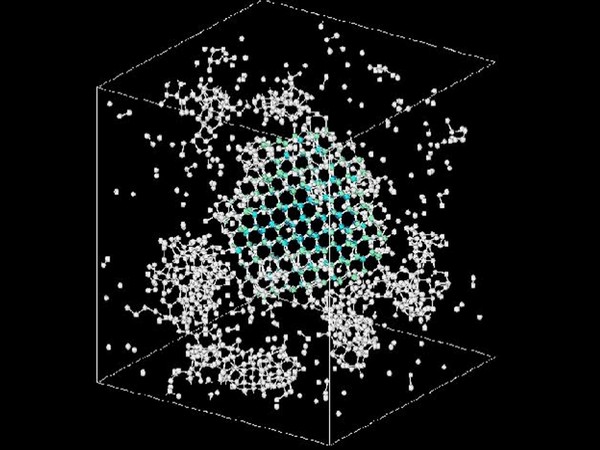
The international research group that includes Ca’ Foscari (together with Università di Roma la Sapienza and the School of Molecular Sciences and Center for Molecular Design and Biomimetics – USA) discovered a general algorithm for the design of self-assembling systems: irregular particles in any arbitrary structure self-assemble into highly sought-after structures, such as the cubic diamond and other photonic structures. This method offers an alternative to the known technique, micro-patterning (e.g., lithography), which is more expensive and does not allow self-assembly in the entire volume of the sample.
Inventors: John Russo, Petr Sulc, Lukas Kroc, Flavio Romano
From waste to commodity: continuous flow lignin fractionation

Lignin is a polymer that constitutes 30% of the lignocellulosic materials and the residue of agricultural and forestry processes, such as pulp & paper and modern biorefinery processes. Currently disposed via combustion, or applied in low value applications, it can find increasingly innovative destinations of greater industrial interest as a commodity, thanks to methods of fractionation with high reproducibility.
This technology allows the first fractionation of lignin in continuous flow, fully automatable at an industrial scale. It has been co-developed and filed for patent application by Ca’ Foscari University of Venice and North Carolina State University (inventors: Claudia Crestini, Heiko Lange, Dimitris Argyropoulos, USA application: US62/784,030, international application: PCT/EP2019/086784) in 2019. The research group led by Claudia Crestini is developing the valorization of agro-forestry waste into nanostructured materials. Read the article
PFAs water pollution detection

The Nanao@Sens research group at Ca' Foscari offers expertise and solutions for the measurement, including on the field, of the concentration of Perfluorooctane Sulfonate (PFOS): one of the most widespread molecules of the PFAs family and a pollutant to groundwater. The techniques made available by the group allow for immediate and inexpensive feedback, by means of a molecular mold electrochemical sensors (MIP sensor).
Read the news: Ca' Foscari researchers invent sensor that can detect PFAS
Inventors: Paolo Ugo, Najmeh Karimian, Angela Maria Stortini, Ligia Maria Moretto
Tactile sensor for robotic arm
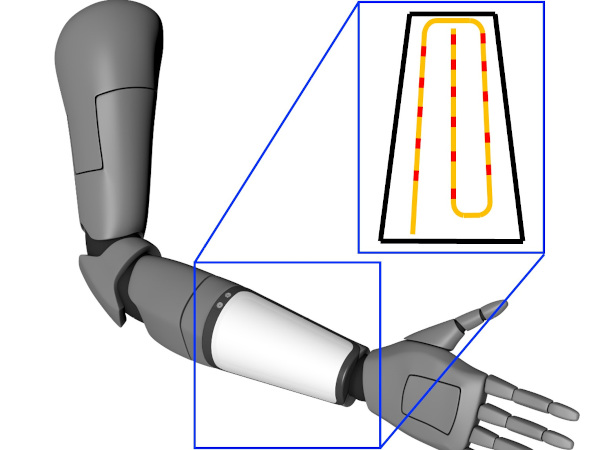
Sensitive robots... or at least their "skin": among the amazing developments of biorobotics, a new tactile sensor transforms the outermost layer of a robot arm into a sort of artificial skin. The receptor, applied over a relatively large area, is in fact able to perceive intensity and point of application of forces, imitating the human sense of touch. Innovative for lightness and adaptability to curved areas, it can cover large surfaces of robotic prostheses and/or collaborative robotic arms.
The technology, which has been co-developed and filed for patent application jointly by Scuola Superiore Sant’Anna - Pisa (Jessica D’Abbraccio, Luca Massari, Calogero Maria Oddo, Giuseppe Terruso), Università degli Studi di Roma "La Sapienza" (Eduardo Palermo), Istituto Italiano di Tecnologia - Genova (Edoardo Sinibaldi), Università Campus Bio-Medico di Roma (Emiliano Schena, Martina Zaltieri) and Ca’ Foscari University of Venice in 2019 - Italian application no. 102019000003657, has been transferred to Ca' Foscari's co-developers in 2021.
Bismuth silicates for better luminescence
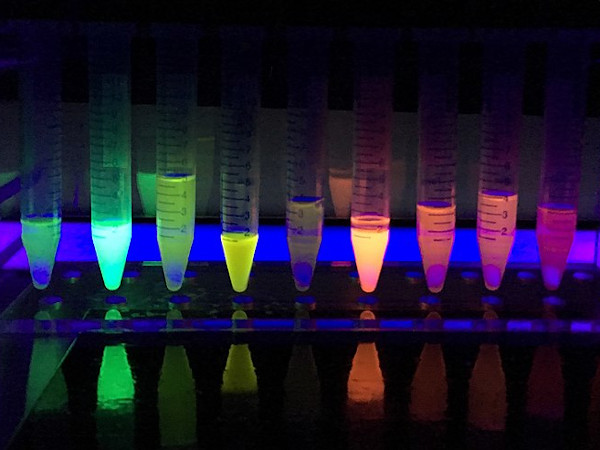
A very simple synthesis procedure can create luminescent compounds that exploit the non-linear optical properties of bismuth silicates. The characteristics of lower cost and toxicity, combined with greater flexibility of use, make it a compound suitable for use in biomedical and therapeutic fields, in lighting as well as in anti-counterfeiting.
Inventors: Michele Back, Pietro Riello
Remote measurement of waves for safety and research in the seas

A system of synchronized cameras, not in contact with water and applied to any type of moving body at sea (e.g., a vessel or an offshore platform), collects data and images of the sea surface to reconstruct in 4D (space + time) the wave spectrum. Its high precision, accuracy, and ease of calibration make it a method of great interest for predictions for commercial navigation, safety at sea, and scientific research. The method has been studied with the CNR - Centro Nazionale delle Ricerche.
Inventors: Filippo Bergamasco, Andrea Torsello (UniVe), Francesco Barbariol, Alvise Benetazzo, Sandro Carniel, Mauro Sclavo (CNR)
Green reagent preparation: organic carbonates

Organic carbonates are non-toxic compounds that are highly biodegradable, excellent substitutes for harmful solvents and additives in the production of pharmaceuticals, fuels and lubricants. The production process of the compound, until now highly toxic, takes advantage of a new procedure that is faster, more environmentally friendly and enables large-scale application of the product.
Inventors: Maurizio Selva (Ca' Foscari University of Venice), Fabrizio Cavani, Tommaso Tabanelli (Alma Mater Studiorum - University of Bologna)

